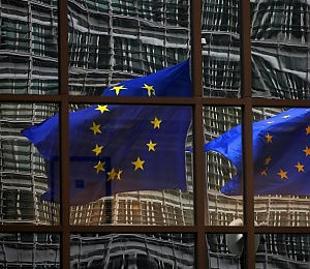- Eurogroup, possible agreement on the credit line Mes
- Nothing done to the Eurogroup, no joint conclusions
Share
03 April 2020In view of the Eurogroup on Tuesday, the Franco-German axis is strengthened: Ministers Le Maire and Scholz, the DPA anticipates, will present themselves with a common position, which supports all short-term measures, including the use of the Mes with very lightened conditionalities. To try to diversify the debate, moving it away from the ideological battle on the Coronabonds against the Mes, meanwhile, Europe invites us to talk about the other options on the table. "There are many in preparation," says the vice-president of the EU Commission responsible for the economy, Valdis Dombrovskis, who tries to draw attention to the operational tools immediately to stem the losses. From the loose state aid, which was extended to the end of the year today, to the European Investment Bank, which proposes a new 200 billion plan to help businesses. All operations to deal with the emergency. But to revive the European economies in the medium-long term, the recipes diverge between the countries that want to get the MES involved and those that still push the Eurobonds, Italy and Spain in the lead.Tuesday's Eurogroup will have a very rich agenda. Europe adds ammunition to the arsenal on an almost daily basis, to make the economic response as powerful as possible. And also to give the image of a Union that agrees on almost everything. Bei will bring to the table the creation of a guarantee fund of 25 billion to offer European companies liquidity for investments of up to 200 billion.
Then there is the Sure , the 100 billion scheme that the EU Commission has put in place to replenish the redundancy fund of the 27, and the redirection of the structural funds. To all this, the Eurogroup will give its ok without reservations. But when it comes to discussing the post-crisis, that is, how - and if - the economies and public finances of the countries in greatest difficulty will emerge, the discussion will become animated. Everyone will come out of the crisis with greater debts and deficits, but those who are already on guard thresholds, would not want to come out more at risk than the others.
The preparatory work done by the Sherpas of Ministers advanced on only one point: the European Stability Mechanism. This is because the Mes is the only tool officially on the table from the first moment, given that it is the European weapon against economic shocks, the only one that can intervene financially when a country gets into difficulties and cannot cope with payments . Given the experience of Greece and the other bailouts, in these weeks of negotiations and contacts all 19 agree at least to ease the conditions for obtaining aid. "There must be no absurd conditionalities and there will be no troika in the country," assures German economy minister Olaf Scholz, describing the work being done in these hours. The idea is to have only one type of conditionality, the same for all, that links the use of emergency aid, therefore sufficiently vague to not expose the weaknesses of any country.
France aligns with Germany on the Mes, but does not renounce the role of mediation between the North and the South. On the Eurogroup table there will therefore also be the French proposal to create a temporary fund, managed by the EU Commission, which issues bonds on the market with common guarantees. Paris is in fact convinced that even if everyone accepts the idea of Eurobonds politically, it will never be a short-term operation. The general manager of the Mes, Klaus Regling, recalls that to create such an instrument would take from 7 months to a year. But the economy, especially of those who are more shabby, cannot wait that long.
Those who are against the Mes are also because they do not consider it sufficient: a loan equal to 2% of their country's GDP is not enough to boost the economy. But for all the rest, there is the ECB: the activation of the Mes is the prerequisite that would allow the ECB to pull out its bazooka, that is, the Omt. It would allow her to purchase government bonds in unlimited quantities, effectively eliminating debt risk.
Gualtieri: EU response adequate only with eurobonds
The common European response to the Coronavirus emergency, "will be adequate only if it includes the joint issuance of European bonds to finance the national coronavirus emergency response plans". This is what the Minister of Economy and Finance, Roberto Gualtieri, declares. "As regards the Mes, for Italy it is an unsuitable tool to manage this crisis in its current form - he adds -. As the Prime Minister, Giuseppe Conte said, only a Mes without conditionality that retains only the name of the old mechanism, becoming in fact a fund for the fight against the pandemic, it could be adequate to contribute, together with the other instruments, to a European response capable of meeting the challenge that must be centered on new solutions ", concludes Minister Gualtieri.

